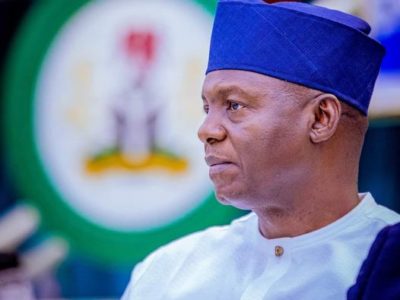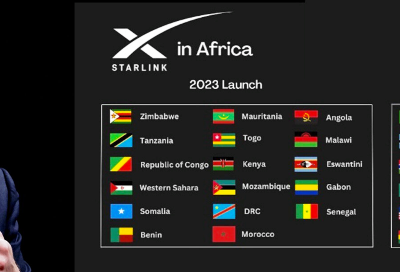By Abdul-Hakeem Ajijola
Many of us believe that African policymakers, in general, develop great policies and plans but that our weakness is only in the implementation. A policy is inherently a statement of intent, while a strategy is the plan for achieving the policy intentions with deliverables, responsibilities, rational outcomes, Key Performance Indicators (KPI’s) and other performance metrics. My experience is that many seemingly professionally written policies, strategies, and plans are severely flawed.
1. The intended outcome of a policy and strategy is that it is implemented in the best interest of stakeholders and the nation. For this to happen:
a. Stakeholders must feel involved in the development process.
b. The document must be understood.
i. To be understood it must be read.
ii. To be read it must be short, direct, and easy to read.
iii. If you subject many Policy documents to the Flesch Reading Ease Formula, and Flesch-Kincaid Grade level Grade Conversion, freely available in Microsoft Word, you will be horrified at the results.
c. Too many policies are written in convoluted arcane formats, incredibly dull and bland. Such documents must be simple, as often political, and strategic policy makers do not understand the nuances and technicalities of the subject matter and many technocrats lack the necessary know-how to address these challenges, nor do they have the power to do so even if they knew what to do.
d. Policy documents are often wrongly targeted. The drafters often target senior policy makers who have attended prestigious policy development institutions and not the middle level public servants, who may not yet have attended such courses, that must take extracts from the policy document as use them to design implementable projects that actualise the policy.
e. Policies are often developed in plush city offices by people who do not understand, have insight or empathy for the stakeholders in the “trenches” who need the positive impact of the policy.
f. Many policy documents that we generate are:
i. Clear on what they set out to achieve (objectives).
ii. Weak on “why” such imperatives are necessary. This includes the belief system and national philosophy and ethos, which arguably our society has not agreed upon.
iii. The strategic implementation component is often very weak with insufficient clarity on what exactly the deliverables are, who has primary and secondary responsibility for the deliverables; describing of the expected rational outcomes; detailing the Key Performance Indicators (KPI’s) and other performance metrics. That said planning in Nigeria is difficult but plan we must, regardless of the uncertainties and lack of credible and detailed statistics.
iv. Such details are usually not easy decisions to make and are fraught with intricacies and sometimes intrigue given they are often encased in “political” ramifications that the drafters, especially public servants prefer to avoid because it might negatively impact their career progression.
2. Rethinking models, sectors, and problems, beyond the obvious. Our policy thinking must evolve given the following examples: Uber is the world’s largest Taxi Company but owns no vehicles[1]; Facebook is the world’s most popular media owner but creates no content; Alibaba is the most valuable retailer in the world and has no inventory; and Airbnb is the world’s largest accommodation owner yet owns no real estate. Arguably the Coca-Cola is NOT a beverage company but a logistics firm because it can deliver a full bottle of Coca-Cola to almost any remote community in Africa and return the empty bottle to the bottling plant, yet we are unable to deliver Information Communications Technology ICT, health support, election materials and other.
“We must appreciate that much of Africa’s ICT challenges are NOT just the last mile connectivity but, in the last 6 inches i.e., from screen to eyes/ brain especially the human and software user interfaces.”
Furthermore, McDonald’s is not so much a fast-food franchise as it is a real estate management organization, because it manages real estate in strategic locations world-wide. The policy implications are that Africa needs encourage the creation of Platforms[2] not just end users; Banks and financial initiatives must adopt New Lending Strategies given and reconsider physical collateral; and policies must seek to combine solutions – combinations of hi-tech, low-tech & no-tech – not simply run after technology. This has implications for the regulatory development process our policies must encourage firm and fair regulation, but we must be careful not to overregulate.
Takeaway: African nations may wish to engage in national conversations about reviewing our policy models with a view to eventually taking a wholistic Information Society and Digital Multimedia approach to our policy, regulatory, resource management and related sectoral development process. As we have seen in other climes, a sound Multimedia (ICT) super regulator effectively compliments a good ICT super Developmental Agency and Cybersecurity Agency to cost effectively drive the development of a trusted, broad-based, and prosperous Information Society.
3. We must appreciate that much of Africa’s ICT challenges are NOT just the last mile connectivity but, in the last 6 inches i.e., from screen to eyes/ brain especially the human and software user interfaces. It is thus imperative that Africa encourage the emergence of local development ecosystems sustainably producing home-grown solutions for indigenous challenges. Our policy outcomes must continually build self-sustaining ecosystems with the awareness that accredited people are the basis of start-up economy while leveraging Public-Private-Partnerships where possible and practical. And further appreciating that Multistakeholder consultation and decision-making processes work in the best long-term interest of all.
4. Policymakers must appreciate that ICT presents a societal Opportunity to generate Wealth, create Jobs and as a by-product Generate Revenue in the form of taxes for government with the understanding that Micro Small and Medium Enterprises (MSME’s) produce more jobs than any other segment, and thus we must first focus on empowering and multiplying MSME’s. Related to this, policy makers must appreciate that it is imperative that we get our Women and youth into ICT and evolve them into Power Players. No Society/ Economy can make significant headway if it does not leverage 50% of its population (Women) and stifles another 47% (Male Youth) of its population. IT permits women to work from home in culturally conservative environments or situations when going out to work is not convenient such as pandemics, while raising a young family or during challenging social, security and economic situations.
5. Drafters of our policy documents are usually placed under unnecessary time pressure. Policy development process are often rushed at the last moment despite the initiative getting stalled for many months, for no apparent reason, within the public service bureaucracy. More thoughtfulness and empathy from the political masters is warranted because policies and strategies have significant implications on the direction and success of the nation and the wellbeing of its people to whom we own a duty of care and full responsibility.
6. Ultimately, the level of awareness of political leaders toward technology in general needs to be improved. Policymakers need to work with organisations and stakeholders to raise the awareness of the political class and demonstrate that investing in people and technology is good politics, because a happy electorate will support the political establishment.
Takeaway: In our policies, plans and decision-making processes, we must always factor the underserved, unserved and unborn, because they are not here to make inputs, yet they must live with the consequences of our decisions.
Abdul-Hakeem Ajijola is at [email protected]
[1] Tom Goodwin /WetpaintMENA Something Interesting is Happening https://www.tomgoodwin.co/
Image: Africa Policy Review






























